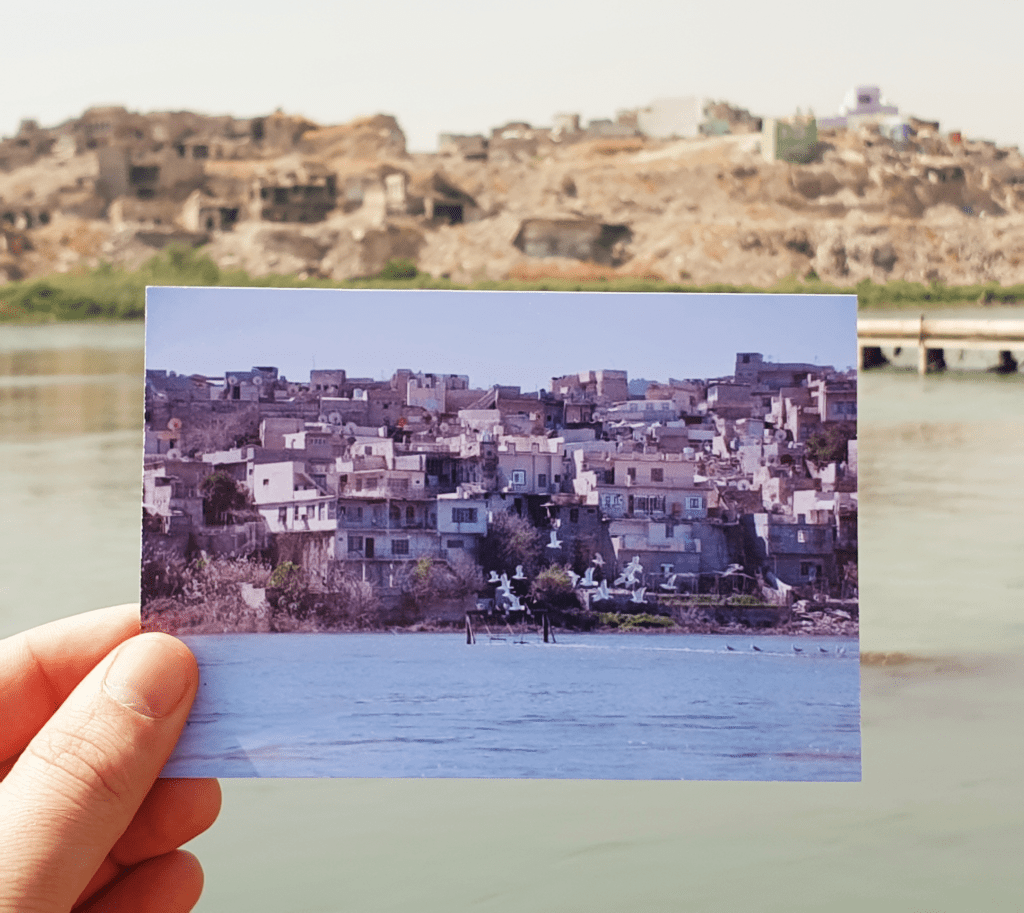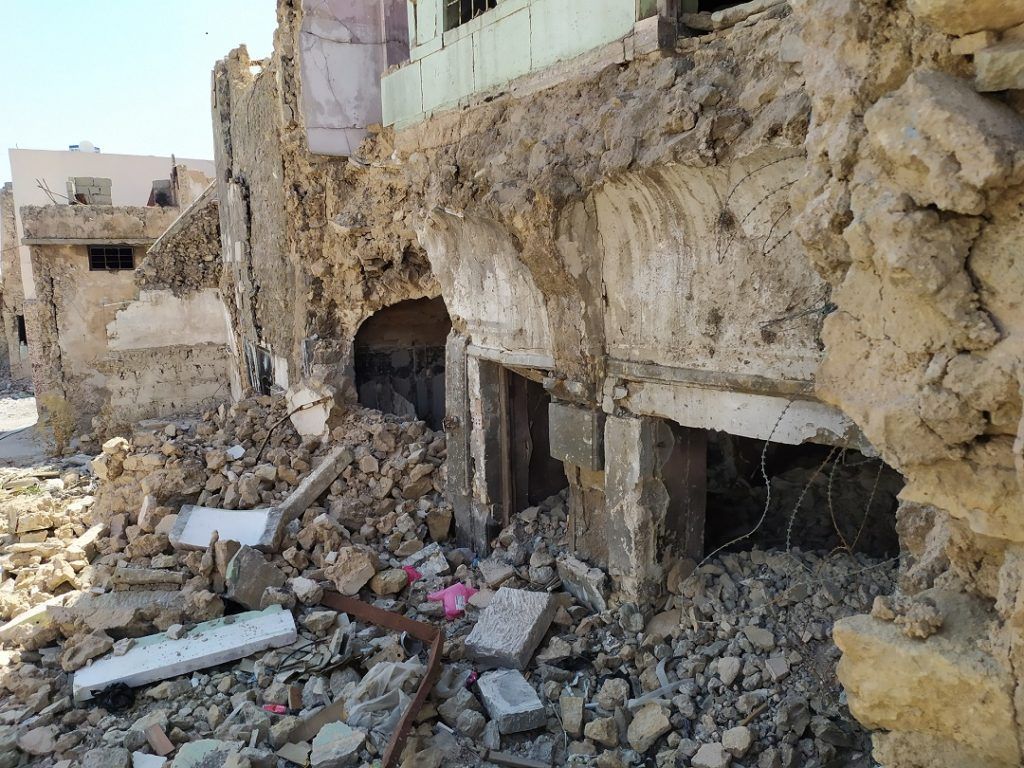 Blogs
Blogs
September 15, 2020 • 5 min read
Mohammad Hazim was born in Mosul in Iraq in 1966. He trained as an engineer but war in his country changed the course of his life. Today he works as a project manager for GOAL, based in his native city.
"The best support you can offer to those going through difficult times is to give them hope that they have the ability to rise again and move forward."
I enjoyed some beautiful times during my childhood growing up in Mosul, my native city and the second largest and the most civilized one in Iraq. A variety of nationalities and ethnicities have lived peacefully together here for nearly 3,000 years.
Sadly, this changed in 1980 when Iraq was involved in a series of wars that has exhausted it economically and socially.
Facing an enduring conflict
In 1988 I graduated as an engineer and then served my time in the army. When the people revolted against Saddam’s regime in 1991, I refused to shoot civilians. This resulted in me being captured by the rebels, and then by the Iranian army. I was considered a prisoner of war even though I did not fight anyone. In Iranian prisons I encouraged people to seek justice and reject injustice, and as a result I was subjected to a number of punishments by my jailers.
After returning to Iraq in the mid-nineties I volunteered to support vulnerable groups in society whose voices were not being heard. But this was very dangerous under Saddam’s regime. In 2003, when Saddam was overthrown by the international coalition, I thought – as did many – that the time for freedom and democracy had come! So I started working in the media and in civil society.
As a journalist I have documented many violations committed against civilians by different parties, and as a civil activist I have advocated and supported the vulnerable. This meant I was constantly under threat.

A picture showing the city of Mosul before and after it was devastated by war.
Leaving Mosul
In Mosul the situation worsened with the growing influence of militias, and the weakening of government power. The city was occupied in 2014 by a few hundred ISIS fighters who faced little resistance from three military divisions of more than 60,000 soldiers equipped with the latest combat equipment.
I left the city with hundreds of thousands of others. On the way out, I started sending reports of what was happening on the ground to international media and local humanitarian organizations.
This led me to work with a number of such organizations, and in the media, to achieve two main goals – to tell the true story of what was happening in Mosul, and to support millions of vulnerable people who either had remained or who were displaced. I had several reports published in the media, including the UK Guardian.
Finding a role in humanitarianism
In the humanitarian sector, I managed a number of projects and I was the only local member of a country team that was leading the humanitarian response in Iraq. One of the projects that I successfully designed and managed was one in which the media was used to protect civilians stranded in Mosul during the fighting.
The first mission that I undertook when my city was recaptured was to train a hundred young men in volunteer work, which is what the city needed.
I photographed and videoed in the Almidan neighbourhood in the old city of Mosul in August 2020. This area is estimated to be more than two thousand years old and overlooks the Tigris River. It was there that the strongest battle took place between the ISIS militants and the Iraqi forces supported by coalition, which claimed thousands of lives. Some victims are still buried under the rubble while the old city was destroyed and 250,000 of its residents displaced until now.
During the filming, a resident told us that part of one of the houses had collapsed the previous day, while children were playing near it.
I have been working for GOAL in Mosul for more than a year and am currently implementing three projects that benefit thousands of the city’s residents economically, despite the challenges of the COVID-19 pandemic and the weakness of medical services in a city where the battles have destroyed most of the hospitals and health centres.
I started working with GOAL as manager of livelihoods projects funded by Irish Aid. Through this project we supported more than 500 families in being more prepared for emergencies, and reducing disaster risks. We also provided support to the poultry production sector and to employment services for job seekers.

The city of Mosul in Iraq was destroyed by fighting during the occupation by ISIS in 2014.
Expanding GOAL’s operations in Mosul
During 2020 we succeeded in expanding GOAL’s interventions in Mosul. In addition to the Irish Aid-supported livelihood projects, we launched a project in partnership with the World Food Program (WFP) that focuses on providing 3,000 jobs for those prevented from work due to restrictions for COVID-19.
Day after day, our work and our team in Mosul is growing at a time which is challenging but also a time of opportunity. It is difficult to deal with the risk of the spread of COVID-19 in a city that has not yet recovered from the wounds and devastation of war. But the GOAL team believe that our humanitarian duty is towards the thousands of vulnerable people here, not to abandon them but to continue to support them during this difficult phase of their lives.
The most important lesson I have learned in my work as a humanitarian activist, and indeed in my entire life, is that the best support you can offer to those going through difficult times is to give them hope that they have the ability to rise again and move forward.
Mosul was destroyed several times throughout its long history. But history tells us that this city never surrendered to its fate.
Yes, while Mosul has been through a catastrophic time, when I look into the smiling eyes of the children I encounter every day I am more certain that a bright future awaits.
